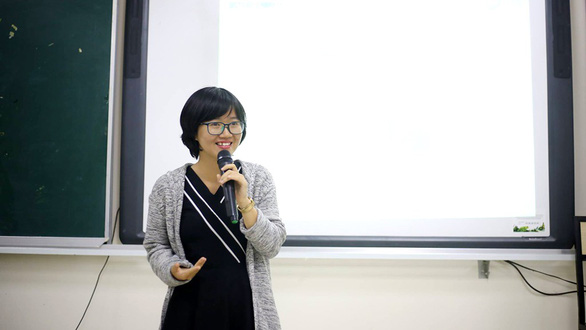A young Vietnamese woman has initiated a project that manufactures reusable sanitary pads in an effort to reduce the amount of garbage dumped every day.
Bui Thi Minh Ngoc established a project called Green Lady Vietnam in 2017 that has produced cloth menstrual pads – items that have started to be used in America, Europe, India, Japan, South Korea, and Vietnam’s neighbors Cambodia, the Philippines and Thailand.
“An average woman uses up to 10,000 disposable sanitary towels during her entire life. But a standard sanitary towel decomposes as slowly as four plastic bags,” Ngoc, 25, said.
She was motivated by the desire to offer sanitary pads made completely of cloth that are tailored to Vietnamese women.
Often working ten to twelve hours a day, she has spent a large part of her time being employed full-time and devoting several hours of the day to plans to develop her own business.
She had a hard time finding suitable cloth for eco-friendly, safe sanitary napkins.
“The fabric has to be naturally made, absorbent, easily washable and quick-drying,” she said.
She traveled to cloth-making villages on the outskirts of Hanoi in the hope of getting good enough fabric but the effort failed.
Her mother, who has enthusiastically supported her, came to the daughter’s rescue by buying the material she needs and finding workers for the Green Lady Vietnam project.
Ngoc’s decision to embark on the undertaking encountered dissuasion from a number of friends and people with knowledge of the menstrual napkin industry.
“Many people told me cloth sanitary pads are a backward step away from modern life, as they cause inconvenience and would hardly sell well,” she recalled.
She has remained undaunted although she was at times uncertain about whether expanding the project would generate any success.
She found a way out by maintaining sanitary pad production while running courses on eco-friendly lifestyles and knowledge of human reproduction.
“I learned how to find an opportunity amidst challenges and grab at it,” she said.
“Even with a focus on the niche market, we decide that what Green Lady Vietnam aims to do is not just sell products but also combine public awareness and action.”
Van Anh, one of Ngoc's customers, has switched to reusable sanitary napkins to avoid getting rid of 20 disposable sanitary pads that could have otherwise been dumped in a month.
Another customer, Hai Anh, said what she liked best about Ngoc’s sanitary pads was their high quality and the beautiful patterns on them.
Ngoc is happy to see that her business has reached Cambodia and is expected to enter the markets of Myanmar and Indonesia soon.
“I wish to make Green Lady Vietnam able to create jobs for disadvantaged women in the future,” she said.
To be ready for use, cloth sanitary pads should be soaked in cold water for half an hour before they can be washed in water at the maximum temperature of 40 degrees Celsius, according to Viet Thi Minh Trang, a department head at the Pham Ngoc Thach University of Medicine in Ho Chi Minh City.
It is advisable to keep the items straight while they are being washed, and then they can be dried at low temperatures, Trang said.
They should be placed in dry places to prevent the growth of microorganisms, she added.
Like us on Facebook or follow us on Twitter to get the latest news about Vietnam!

















































